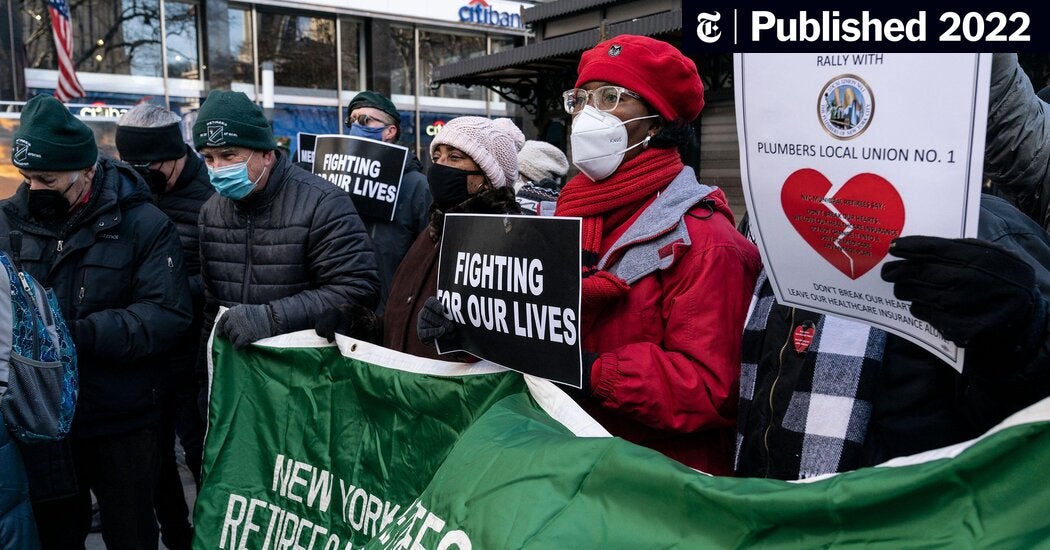southernhybrid
Contributor
I've known for years that what is called a non profit hospital can be just as greedy, and poorly managed as any for profit hospital. I've always been skeptical of Emory U hospital system since it is a so called non profit and has offices and clinics scattered all over northern Georgia. Emory might be a good hospital, as I've known a few people who did receive outstanding care there, but the NYTimes did an investigation of a large chain that is a so called non profit but has reduced staff, while increasing CEO pay, resulting in problems with quality of care, overworked nurses etc. It's much worse than I had imagined.
https://www.nytimes.com/2022/12/15/...fsunPpbGflXUYNsm_yr3SjHROfeNvA&smid=share-url
There's a lot more in the linked article, which I've gifted so you all can read it and then express your thoughts. My thoughts are that our health care system in the US is primarily made up of greedy organizations that are far more interested in making money than in caring for patients. They don't care about nurses or aides or other healthcare workers, and this is causing huge numbers of healthcare workers to leave the field or try to find jobs where they can use their skills without the demanding nature that hospitals expect of them. I don't know if there is a solution. As long as greed rules the day, how do things change? I saw home health and hospice go from caring organizations that put patient care first, to profit making organizations that wold violate Medicare rules in order to make more money. But, I digress. I primarily wanted to discuss non profit hospitals and how they have taken advantage of the system.
https://www.nytimes.com/2022/12/15/...fsunPpbGflXUYNsm_yr3SjHROfeNvA&smid=share-url
At a hospital in a Chicago suburb last winter, there were so few nurses that psychiatric patients with Covid were left waiting a full day for beds, and a single aide was on hand to assist with 32 infected patients. Nurses were so distraught about the inadequate staffing that they banded together to file formal complaints every day for more than a month.
About 300 miles away, at a hospital outside Flint, Mich., similar scenes were unfolding. Chronic understaffing meant that patients languished in dried feces, while robots replaced nursing assistants who would normally sit with mentally impaired patients.
Both hospitals are owned by one of the country’s largest health systems, Ascension. It spent years reducing its staffing levels in an effort to improve profitability, even though the chain is a nonprofit organization with nearly $18 billion of cash reserves.
Since the start of the pandemic, nurses have been leaving hospitals in droves. The exodus stems from many factors, with the hospital industry blaming Covid, staff burnout and tight labor markets for acute shortages of staff.
But a New York Times investigation has found that hospitals helped lay the groundwork for the labor crisis long before the arrival of the coronavirus. Looking to bolster their bottom lines, hospitals sought to wring more work out of fewer employees. When the pandemic swamped hospitals with critically ill patients, their lean staffing went from a financial strength to a glaring weakness.
More than half of the roughly 5,000 hospitals in the United States are nonprofits. In exchange for avoiding taxes, the Internal Revenue Service requires them to offer services, such as free health care for low-income patients, that help their communities.
But The Times this year has documented how large chains of nonprofit hospitals have moved away from their charitable missions.
Some have skimped on free care for the poor, illegally saddling tens of thousands of patients with debts. Others have plowed resources into affluent suburbs while siphoning money from poorer areas.
There's a lot more in the linked article, which I've gifted so you all can read it and then express your thoughts. My thoughts are that our health care system in the US is primarily made up of greedy organizations that are far more interested in making money than in caring for patients. They don't care about nurses or aides or other healthcare workers, and this is causing huge numbers of healthcare workers to leave the field or try to find jobs where they can use their skills without the demanding nature that hospitals expect of them. I don't know if there is a solution. As long as greed rules the day, how do things change? I saw home health and hospice go from caring organizations that put patient care first, to profit making organizations that wold violate Medicare rules in order to make more money. But, I digress. I primarily wanted to discuss non profit hospitals and how they have taken advantage of the system.

